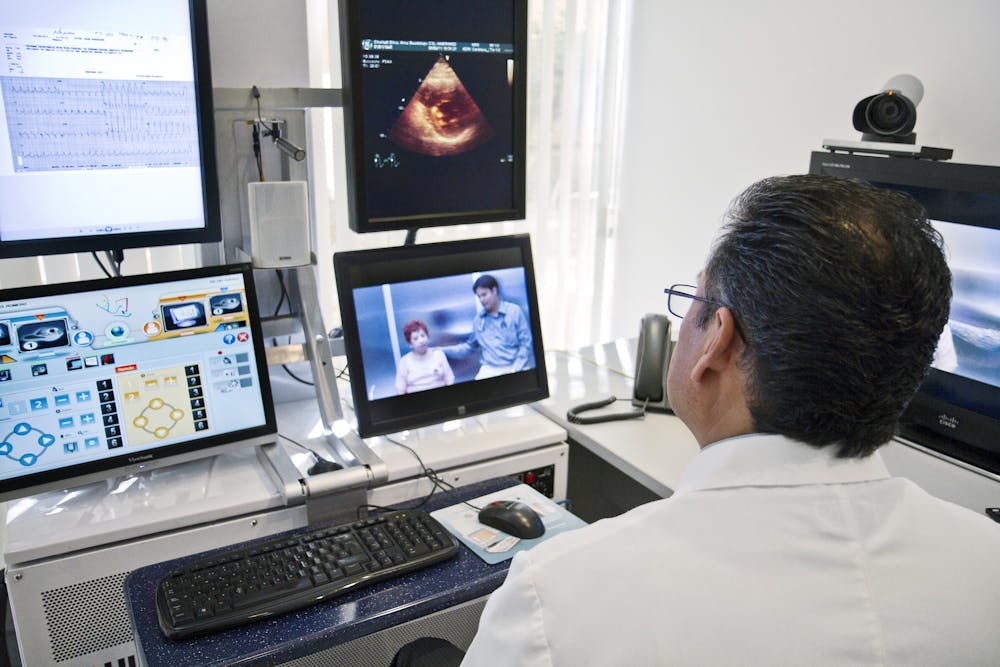The Hospital of the University of Pennsylvania is attempting to limit the number of times pregnant women are exposed to the risk of coronavirus by introducing robots and telemedicine to the process, The Philadelphia Inquirer reported.
Before delivery, women often visit doctor's offices or hospitals for checkups, ultrasounds, and blood pressure monitoring, The Philadelphia Inquirer reported. By limiting the amount of time women spend in healthcare facilities before and after delivery, the new policies can decrease women's exposure to coronavirus, The Philadelphia Inquirer reported.
HUP introduced telemedicine options last week, and is offering pregnant patients a tool to measure blood pressure at home, The Philadelphia Inquirer reported. Pregnant women can cuff a band to their arms so they can report their blood pressure to their doctor via phone, allowing them to limit in-person appointments.
HUP has also provided a check-in system for women after delivery that allows them to ask questions to a chatbot using an augmented intelligence program while at home, The Philadelphia Inquirer reported. The system allows women to leave the hospital earlier, and decreases their risk of exposure to coronavirus.
The after-delivery system was inspired by Penn Medicine's “Healing at Home” program that began in 2017, The Philadelphia Inquirer reported. The chatbot is named Penny, and is also available for postpartum counseling, The Philadelphia Inquirer reported. Currently, it is only available to mothers who delivered vaginally with few complications.
Assistant professor of Clinical Obstetrics and Gynecology Kirsten Leitner, who oversees the program, told The Philadelphia Inquirer that women can also speak directly to a clinician if they have unique or more specific questions, including ones about breastfeeding and postpartum depression screening.
Leitner told The Philadelphia Inquirer that these two programs have been comforting for pregnant women, especially because a doctor is available within 30-60 minutes if needed.
“To know there is something established [the new mothers] can be grounded in is a huge benefit to this program,” Leitner said.
RELATED:
Philadelphia’s Homewood Suites by Hilton to offer free rooms to healthcare, safety workers
Four Penn grads are mass-producing 3D-printed face shields to protect healthcare workers
Penn hospitals and facilities have also addressed coronavirus in other ways. The Wistar Institute announced in January that it would begin work to develop a vaccine, and Penn Medicine opened two drive-thru test sites on March 16. The Perelman School of Medicine created the new Center of Research on Coronaviruses and Other Emerging Pathogens to expand research and support vaccines and therapies.









